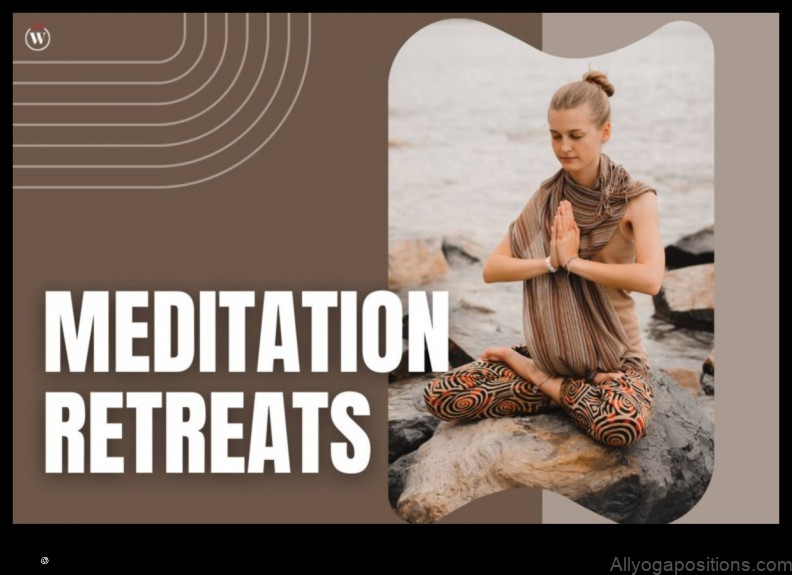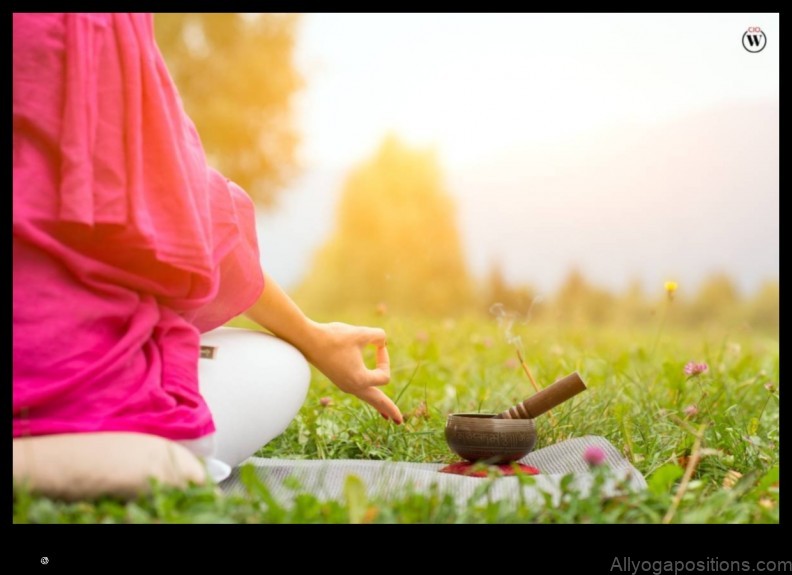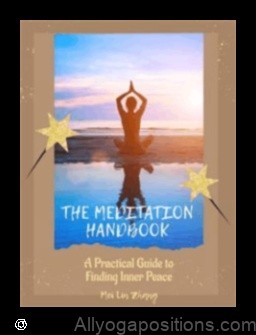
Meditation Retreats: A Journey to Inner Transformation
Meditation retreats are a great way to immerse yourself in the practice of meditation and experience its many benefits. In a supportive environment, you can learn new techniques, deepen your practice, and connect with others on a similar path.
This article will provide you with an overview of meditation retreats, including the benefits, types, how to choose one, and what to expect. We’ll also discuss how to benefit from a meditation retreat and how to care for yourself after your retreat.
Benefits of Meditation Retreats
Meditation retreats can offer a number of benefits, including:
- Reduced stress and anxiety
- Improved focus and concentration
- Increased mindfulness and awareness
- Deeper relaxation
- Enhanced spiritual growth
- Improved relationships
- Enhanced physical health
Types of Meditation Retreats
There are many different types of meditation retreats available, each with its own unique focus and style. Some of the most common types of meditation retreats include:
- Vipassana meditation retreats
- Zen meditation retreats
- Tibetan Buddhist meditation retreats
- Yoga and meditation retreats
- Mindfulness meditation retreats
- Christian meditation retreats
- Jewish meditation retreats
How to Choose a Meditation Retreat
When choosing a meditation retreat, there are a few things you should consider, including:
- Your personal goals for the retreat
- The type of meditation you’re interested in learning
- The length of the retreat
- The cost of the retreat
- The location of the retreat
- The retreat’s facilities and amenities
Preparing for a Meditation Retreat
There are a few things you can do to prepare for a meditation retreat, including:
- Start practicing meditation regularly
- Create a meditation schedule that you can stick to
- Get plenty of rest and nutrition
- Pack comfortable clothing and shoes
- Set aside time for journaling and reflection
What to Expect During a Meditation Retreat
Meditation retreats can vary in length from a few days to a few weeks. During a meditation retreat, you can expect to spend most of your time in meditation. You may also participate in other activities such as yoga, chanting, and discussion groups.
It’s important to be aware that meditation retreats can be challenging. You may experience some discomfort, such as fatigue, hunger, or emotional turmoil. It’s important to allow yourself to experience these emotions and to not resist them.
How to Benefit from a Meditation Retreat
You can benefit from a meditation retreat in a number of ways, including:
- Learning new meditation techniques
- Deepening your practice
- Connecting with others on a similar path
- Experiencing personal growth
- Finding peace and clarity
Aftercare for a Meditation Retreat
It’s important to take care of yourself after a meditation retreat. Here are a few tips:
- Continue practicing meditation regularly
-
Feature Description Meditation Retreats A period of time spent in silence and meditation, typically away from home. Inner Transformation The process of changing one’s inner self through meditation and other spiritual practices. Mindfulness The practice of paying attention to the present moment, without judgment. Spiritual Growth The process of developing one’s spirituality through meditation and other spiritual practices. Self-Discovery The process of discovering one’s true self through meditation and other spiritual practices. 
2. Benefits of Meditation Retreats
Meditation retreats can offer a variety of benefits for participants, including:
- Reduced stress and anxiety
- Improved focus and concentration
- Increased mindfulness and awareness
- Deeper relaxation
- Enhanced spiritual growth
- Improved relationships
- Greater self-awareness
- A sense of peace and well-being
3. Types of Meditation Retreats
There are many different types of meditation retreats available, each with its own unique focus and approach. Some of the most common types of meditation retreats include:
- Vipassana meditation retreats
- Zen meditation retreats
- Tibetan Buddhist meditation retreats
- Hindu meditation retreats
- Christian meditation retreats
- Mindfulness meditation retreats
- Yoga meditation retreats
- Sound healing meditation retreats
- Art therapy meditation retreats
When choosing a meditation retreat, it is important to consider your personal interests and needs. If you are new to meditation, you may want to choose a retreat that offers a beginner-friendly approach. If you are looking for a more intensive experience, you may want to choose a retreat that offers longer periods of meditation each day.
It is also important to consider the location of the retreat. If you are looking for a retreat that will offer you a sense of peace and tranquility, you may want to choose a retreat that is located in a remote area. If you are looking for a retreat that will offer you access to cultural attractions, you may want to choose a retreat that is located in a city or town.

4. How to Choose a Meditation Retreat
Choosing a meditation retreat can be a daunting task, but it’s important to find one that’s right for you. Here are a few things to consider when making your decision:
- Your goals for the retreat
- Your budget
- Your location preferences
- The retreat’s schedule and activities
- The retreat’s facilities and accommodations
- The retreat’s staff and teachers
Once you’ve considered these factors, you can start narrowing down your choices. It’s a good idea to read reviews of different retreats, talk to people who have attended them, and visit the retreat’s website to learn more about its offerings.
When you’re ready to book a retreat, be sure to ask about the cancellation policy and any other terms and conditions. It’s also important to make sure that you have the appropriate travel insurance in place in case of any unforeseen circumstances.
Choosing a meditation retreat is an important decision, but it can be a very rewarding experience. By taking the time to find a retreat that’s right for you, you can set yourself up for a truly transformative experience.
5. Preparing for a Meditation Retreat
Preparing for a meditation retreat can be an important part of making the most of your experience. Here are a few things you can do to prepare:
-
Do your research.
-
Choose a retreat that is right for you.
-
Make a commitment to yourself.
-
Prepare your body and mind.
-
Set realistic expectations.
By following these tips, you can help ensure that you have a positive and transformative experience on your meditation retreat.
6. What to Expect During a Meditation Retreat
During a meditation retreat, you can expect to spend most of your time in meditation. You will also participate in other activities such as yoga, chanting, and walking meditation. The schedule of a meditation retreat will vary depending on the retreat center, but you can generally expect to spend the following:
- Several hours each day in meditation
- Some time each day in yoga or other movement practices
- Some time each day in chanting or other group activities
- Some time each day for rest and relaxation
In addition to the structured activities, you will also have time to explore the retreat center and its grounds. You may also have the opportunity to meet with other retreatants and share your experiences.
Meditation retreats can be a challenging but rewarding experience. They can help you to deepen your meditation practice, learn new techniques, and connect with your inner self. If you are considering attending a meditation retreat, it is important to do your research and find a retreat that is right for you.
How to Benefit from a Meditation Retreat
Meditation retreats can be a powerful way to deepen your practice and experience the benefits of meditation. However, it’s important to know how to get the most out of your retreat. Here are a few tips:
- Set realistic goals for yourself. What do you hope to achieve during your retreat? Be specific and make sure your goals are achievable.
- Create a plan for your retreat. What activities do you want to participate in? How much time do you want to spend in silence? Make sure your plan is aligned with your goals.
- Be prepared for challenges. Meditation retreats can be challenging, both physically and mentally. It’s important to be prepared for challenges and to have a support system in place.
- Embrace the experience. Meditation retreats are a unique opportunity to step outside of your normal routine and experience something new. Embrace the experience and allow yourself to grow.
If you follow these tips, you’ll be well on your way to a successful meditation retreat.
Aftercare for a Meditation Retreat
Aftercare for a meditation retreat is an important part of the process of integrating the experience into your everyday life. It can help you to maintain the benefits of the retreat, and to continue to grow and develop on your spiritual path.
Here are some tips for aftercare:
- Continue to meditate on a regular basis. This will help you to maintain the benefits of the retreat, and to continue to deepen your practice.
- Journal about your experience. Writing about your thoughts and feelings can help you to process the experience, and to integrate it into your life.
- Connect with other meditators. Sharing your experience with others can help you to feel supported, and to learn from others’ experiences.
- Make changes to your life. The insights you gained during the retreat may inspire you to make changes to your life. This could include changing your diet, your relationships, or your career.
Aftercare for a meditation retreat can be a challenging process, but it is also an important one. By following these tips, you can help to ensure that you get the most out of your retreat experience, and that you continue to grow and develop on your spiritual path.
9. FAQ
Here are some frequently asked questions about meditation retreats:
- What is a meditation retreat?
- What are the benefits of attending a meditation retreat?
- What types of meditation retreats are there?
- How do I choose a meditation retreat?
- What should I expect during a meditation retreat?
- How can I benefit from a meditation retreat?
- What is aftercare for a meditation retreat?
For more information on meditation retreats, please see the following resources:
10. Conclusion
Meditation retreats can be a powerful tool for personal growth and transformation. By providing a supportive environment and dedicated time for practice, meditation retreats can help you to deepen your meditation practice, connect with your inner wisdom, and experience greater peace and well-being.
If you are considering attending a meditation retreat, be sure to do your research and choose a retreat that is right for you. There are many different types of meditation retreats available, so it is important to find one that aligns with your goals and interests.
With careful planning and preparation, you can embark on a meditation retreat that is both challenging and rewarding. By the end of your retreat, you may be surprised at how much you have grown and changed.
FAQ
Q: What is a meditation retreat?
A: A meditation retreat is a period of time spent in silence and meditation. During a retreat, you will typically spend several hours each day in meditation, as well as participating in other activities such as yoga, chanting, and discussion groups.
Q: What are the benefits of attending a meditation retreat?
A: There are many benefits to attending a meditation retreat, including:
- Deepening your meditation practice
- Connecting with your inner wisdom
- Experiencing greater peace and well-being
- Reducing stress and anxiety
- Improving your focus and concentration
- Boosting your creativity
- Releasing negative emotions
- Healing from trauma
Q: What should I expect during a meditation retreat?
A: Your experience of a meditation retreat will vary depending on the type of retreat you attend and the specific practices that are offered. However, some common things you can expect include:
- Spending several hours each day in meditation
- Participating in other activities such as yoga, chanting, and discussion groups
- Living in silence for the duration of the retreat
- Eating simple, vegetarian meals
- Having the opportunity to connect with other meditators
Table of Contents
Maybe You Like Them Too
- Yoga for Social Anxiety A Guide to Finding Comfort in Your Body and Mind
- Yoga for Seniors Gentle Practices for a Healthy Mind and Body
- Yoga for Emotional Release Body Scan Meditation – A Guide to Healing Trauma and Unresolved Emotions
- Yoga for Emotional Balance Mindful WalkingA Gentle Practice to Calm the Mind and Body
- Yoga for Emotional Resilience Find Freedom from Your Past
